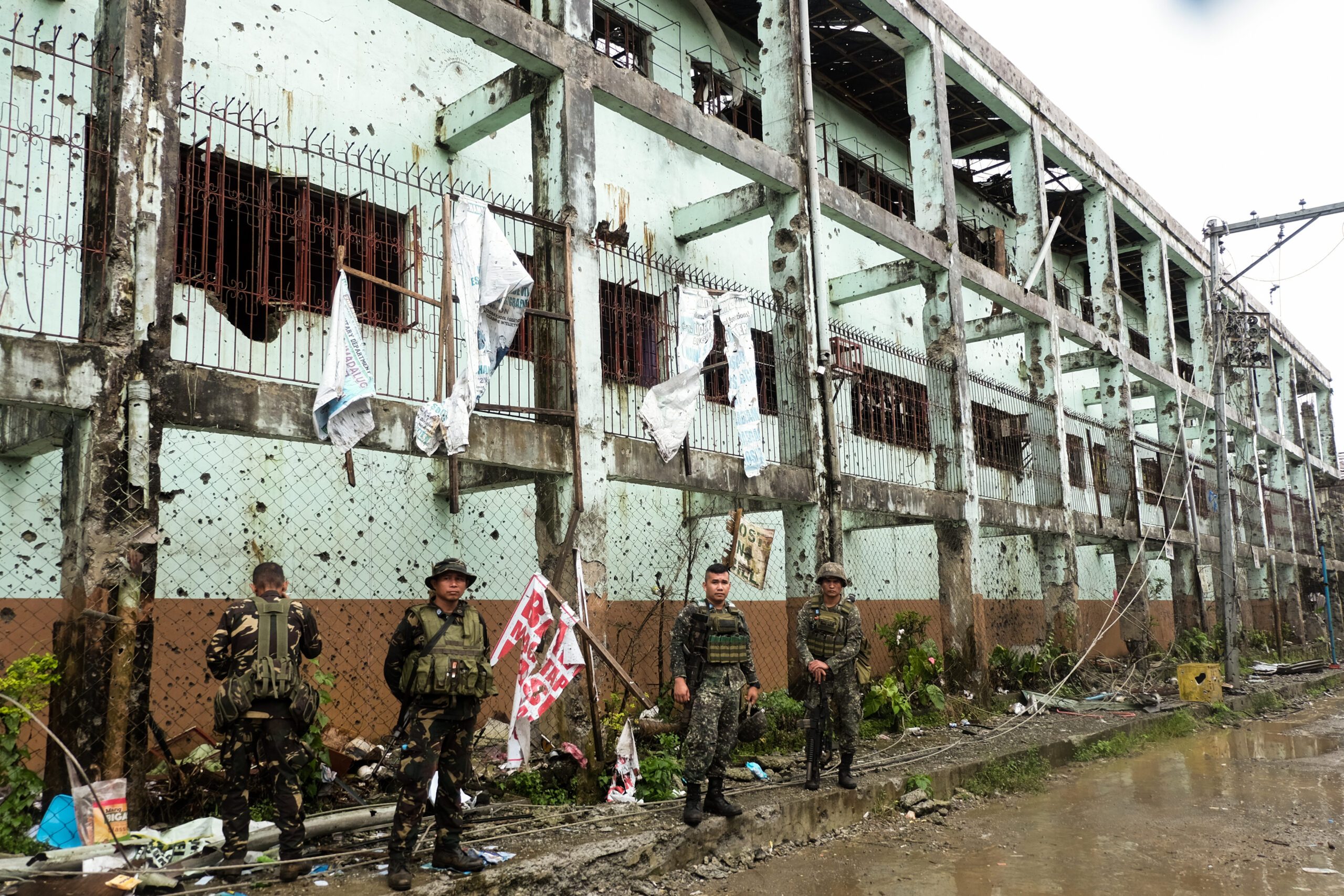SUMMARY
This is AI generated summarization, which may have errors. For context, always refer to the full article.

MANILA, Philippines – The task force behind Marawi rehabilitation is studying each offer of foreign assistance to ensure they pass President Rodrigo Duterte’s requirement: that they not come with strings attached.
“Any pledge or any aid that we receive or offers of donations have to go through the task force,” said Office of Civil Defense Assistant Secretary Toby Purisima on Friday, October 27, in Malacañang.
If a foreign country or organization makes a direct offer to an agency or department involved in Marawi rehabilitation, the plan is for them to inform Task Force Bangon Marawi first.
“The agreement is that, that agency would have to disclose that to the task force and the task force will discuss whether to accept it,” said Purisima.
An inter-agency support group led by the Department of Finance, Department of Budget and Management, and National Economic and Development Authority will make the first pass on the aid offered.
Aside from matching the aid with needs on the ground, one major consideration in deciding whether or not to accept it is whether or not it complies with Duterte’s requirement that assistance come without “conditions”.
“We understand that there are certain pronouncements made by the President regarding certain manners. Of course, we’re duty-bound to follow those policies,” said Purisima.
He gave assurances the task force would regularly inform the public about which donations are accepted.
European Union aid is among the offers of assistance still being studied by the task force.
The aid offered but not yet accepted are from the following: USAID (the United States’ international aid agency), Asian Development Bank, European Union, United Nations Development Program, Australia, and Japan.
Purisima could not say what type of aid the EU was offering.
But Defense Secretary Delfin Lorenzana, head of the rehabilitation task force, had said the EU had offered P49 million. A total of P2.1 billion in foreign aid had been pledged as of September 15.
Foreign Secretary Alan Peter Cayetano said the Philippines is open to EU aid as long as it comes without conditions.
Purisima said the Philippine government has accepted offers from the following: Canada, China, Germany, South Korea, India, Thailand, Singapore, USAID, and AHA Centre (ASEAN Coordinating Centre for Humanitarian Assistance on Disaster Management).
The aid that has been accepted is currently being matched with needs in the rehabilitation phase, said Purisima.
For the remainder of the year, the government has allocated P5 billion for the first phase of rehabilitation.
These funds will be devoted to the continued distribution of relief goods and medical services for displaced residents; construction of transitional housing, water and power supply; safety and security measures; livelihood programs; and workshops and solidarity gatherings. – Rappler.com
Add a comment
How does this make you feel?
There are no comments yet. Add your comment to start the conversation.